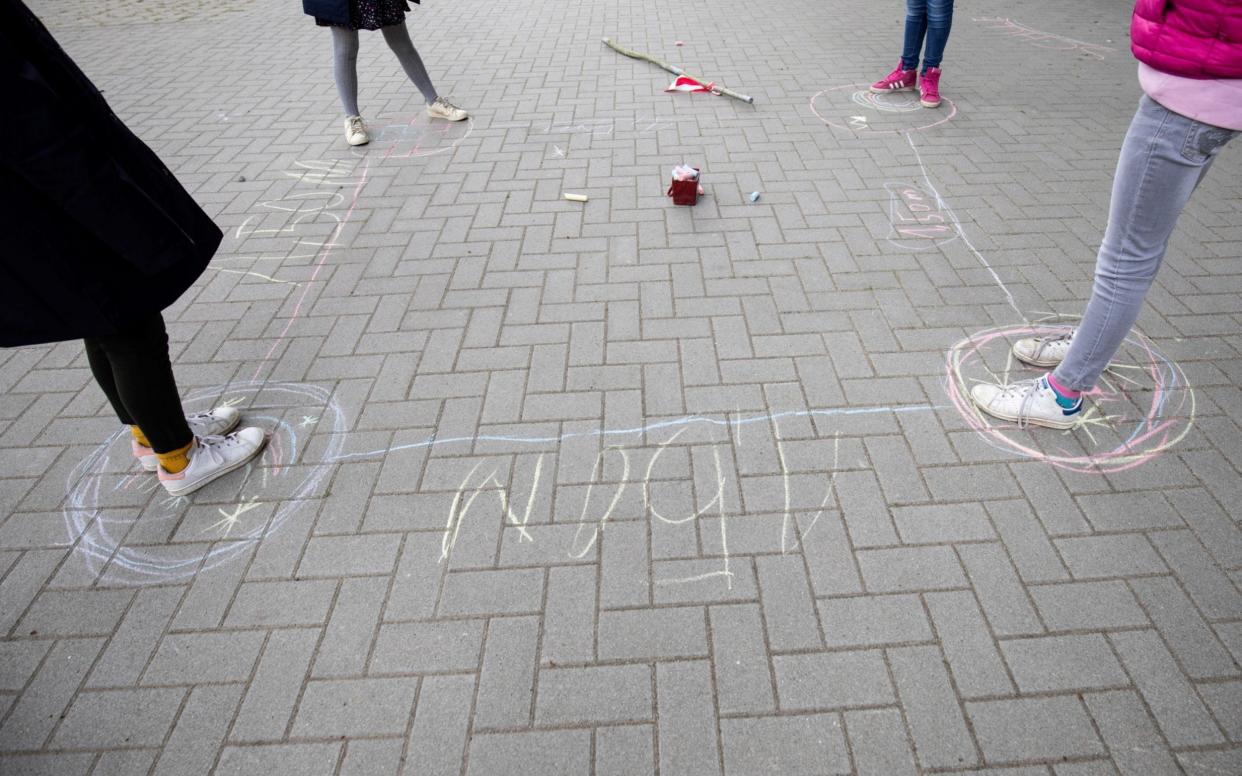Reduced subject choice and end to the school bell: SNP ministers set out plan for classroom return

Subject choice for some senior pupils will be curtailed and the school bell will be banned when students finally return to Scottish classrooms.
New guidelines issued to headteachers and town halls also state that pupils must stay two metres apart whenever possible while younger children, who would be unable to follow physical distancing rules, will be taught in small groups.
Break times will be staggered, with older pupils ordered to remain in small designated groups and stand in marked-off playground "zones". Younger pupils will also be told to stay in small groups, and will be supervised to ensure they do not break the rules.
Meanwhile, many school cafeterias will be redesigned as classrooms, with pupils instead eating at their desks and meals delivered on lunch trolleys.
Concern was raised after the Scottish government guidance permitted schools to offer fewer subjects to high school pupils in their senior phase, particularly in larger schools.
A review had already been ordered after Holyrood’s education committee found last year that choice had been restricted in recent years following an overhaul of the curriculum.
Jamie Greene, education spokesman for the Scottish Conservatives, said that while he accepted education delivery once schools resume would be different, quality and choice “must be protected”.
“Subject choice was in decline before the Covid crisis, so much so that an international organisation has been drafted in to identify root problems with the curriculum,” he said.
“The suggestion that pupils in the senior phase could now face a reduced subject offer is extremely serious and could unnecessarily curtail the life choices of many students.
“The Scottish government must pull out all stops to ensure that subject choice is not reduced, every option must be explored and no stone left unturned. The current crisis cannot be the go to excuse for failures accumulated over a decade.”
While Boris Johnson has confirmed that schools in England will reopen on a phased basis from Monday, in Scotland they will remain shut until August 11.
They will then reopen on a part time basis for pupils, with students potentially spending as little as two days a week at school and the rest of their time learning from home.
Experts have raised concerns about the impact the prolonged break from classrooms will have on children with one warning the damage to their educations could be “irreversible”.
Scottish schools, which closed in March, have been asked to assess the space available to them and reconfigure facilities so that as many pupils as possible can attend at any one time.
They have been told to consider a “no school bell” policy so that class start times can be staggered so that pupils do not pass as many of their peers as they move around school. Meanwhile, children and staff should use the same desks “where possible”.
John Swinney, the education secretary, said: “The health and wellbeing of children and young people is our priority, which is why in implementing this guidance, we will adopt a cautious approach and monitor progress to inform decisions on further changes to restrictions.
“It is important to stress that there will be regional variation in the approach to implementation. It is for councils to work with teachers and put in place the best solutions locally. I am certain they will rise to the challenge.”
Opposition MSPs called for clarity about how working parents would be able to care for their children if they were at school only part time.
Beatrice Wishart, education spokeswoman for the Scottish Liberal Democrats, said: "Ministers must be clear and open about what these parents are expected to do and how they are going to help them. Will further childcare be provided? And if so, who will pick up the cost?
“Parents who are balancing childcare and working face enough uncertainty and disruption already. These are important points that cannot be ignored."


